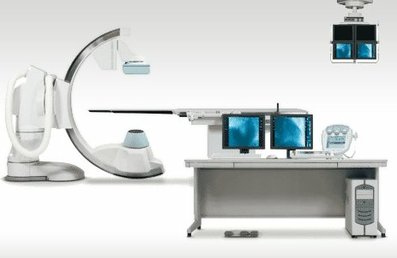Can AI really take on a supporting role in the supply chains or is it just a temporary trend? Prof. Dr. Michael Feindt comments on why AI skepticism is based on a wrong view of science and how a rethinking can succeed.
Data science has become an integral part of strategic planning in many companies. In order to realistically plan future developments, we need Artificial intelligence (AI) and machine learning (ML). Especially in the retail sector, more and more large players rely on AI solutions that enable precise forecasts and optimize stocks or prices, for example. But many decision-makers do not yet believe that AI will play a major role in the supply chains of the future. The reason for this lies in a false view of science.
Science is rarely unambiguous
Many people are of the opinion that science always leads to 100 percent certainty. We have accepted many observations around us, such as the movements of stars and bodies in the daily environment, as explainable by scientific, in this case physical, principles (although the majority did not understand them). These findings create trust and provide us with a stable basis for life. Each of these certainties is the result of millions of observations, scientific hypotheses, counterexamples and other parameters. Contrary to popular belief, however, science cannot always guarantee absolute certainty on every question. In subatomic physics as well as in many complex systems – for various reasons – the future can often only be predicted in the short term and with uncertainties, such as weather.
Even in many applications of data science, the individual forecasting ability is limited, the optimal forecast is a probability that is as individualized as possible and as sharp as possible for every possible future. Natural scientists and statisticians know the limits of predictability, while laymen often think that science can calculate and predict everything in principle with 100 percent accuracy.
There is a significant difference between deterministic and probabilistic science. The former is always looking for a definitive answer – for rules that verify an observation 100 percent and can be proven with certainty. There are countless examples of this, such as every pendulum swing, the daily sunrise, magnetic phenomena or gravity. Physicists have discovered corresponding formulas that reliably describe all observations. For example, with the invention of the parachute, we can still be scientifically sure that a person will get back to the ground in a healthy way even when falling from a great height. However, it is only relatively simple and isolatable processes in which this works.
100% accuracy is never achieved
However, the vast majority of science is not deterministic, but probabilistic. Here, too, we try to expand our knowledge of trends, patterns and regularities with as many observations as possible, and to predict them in the form of probability distributions. But in most cases, as a result, we do not achieve close to 100 percent accuracy. There are simply too many factors that would have to be taken into account for reliable findings, such as the speed of individual air molecules, but there are billions of them and we can never measure all of them at the same time. It is important to overcome the distinction between these two scientific principles. We people believe so much in the deterministic component and are always looking for 100 percent certainty. However, most technological progress (for example, semiconductors, computers, mobile phones) is based on phenomena that can only be described scientifically by probabilities.
A striking example is the vaccination against Covid-19: When people learn that the solution offered by science is not 100 percent effective, many decide against it – although the vaccination is a much better alternative to a corona disease. Far less serious is the decision-making in retail. Nevertheless, in a business sense, the non-implementation of machine learning (ML) can have serious consequences. Thus, inaccuracies in procurement processes and the determination of inventories can cause massive disadvantages in terms of sales, logistics processes, environmental aspects and the reputation of a company – while competition optimizes these parameters.
Conclusion: Machine learning makes predictions more realistic
ML is based on the same principles from which we can obtain scientific knowledge, predict phenomena and influence the future for our benefit. Usually these are ‘only’ quantified by probabilities. The more valid data there is, the more reliable the algorithm can make statistically significant predictions. But one thing is certain: as soon as observations (historical data) are used (mathematically correct), forecasts achieve a significantly higher accuracy than human assessments – which are often biased. However, there will never be 100 percent accurate predictions. Because people have free will, trends are changing, billions of environmental influences are difficult to measure and predict, and economic and political factors are subject to continuous change.
While we humans can hardly keep up with this level of change, let alone make statistically correct predictions in real time, ML is quite capable of this to a certain extent. Nevertheless, the technology cannot work miracles, but it brings us a decisive step closer to the realistic prediction of the future and thus creates a decisive advantage.
This article comes from our partner portal Industry of Things.







